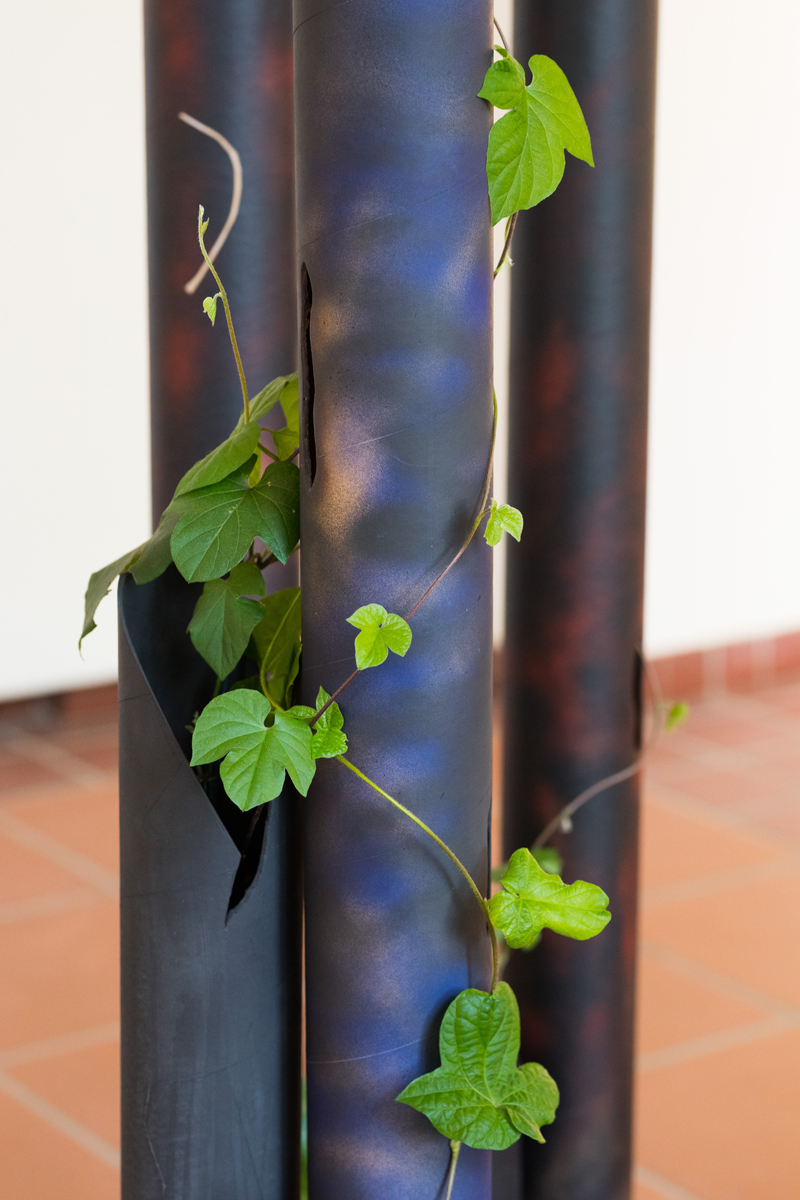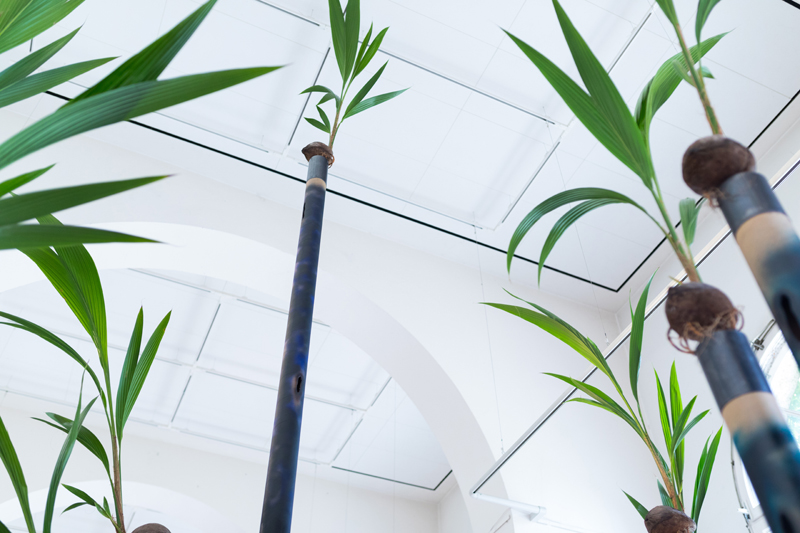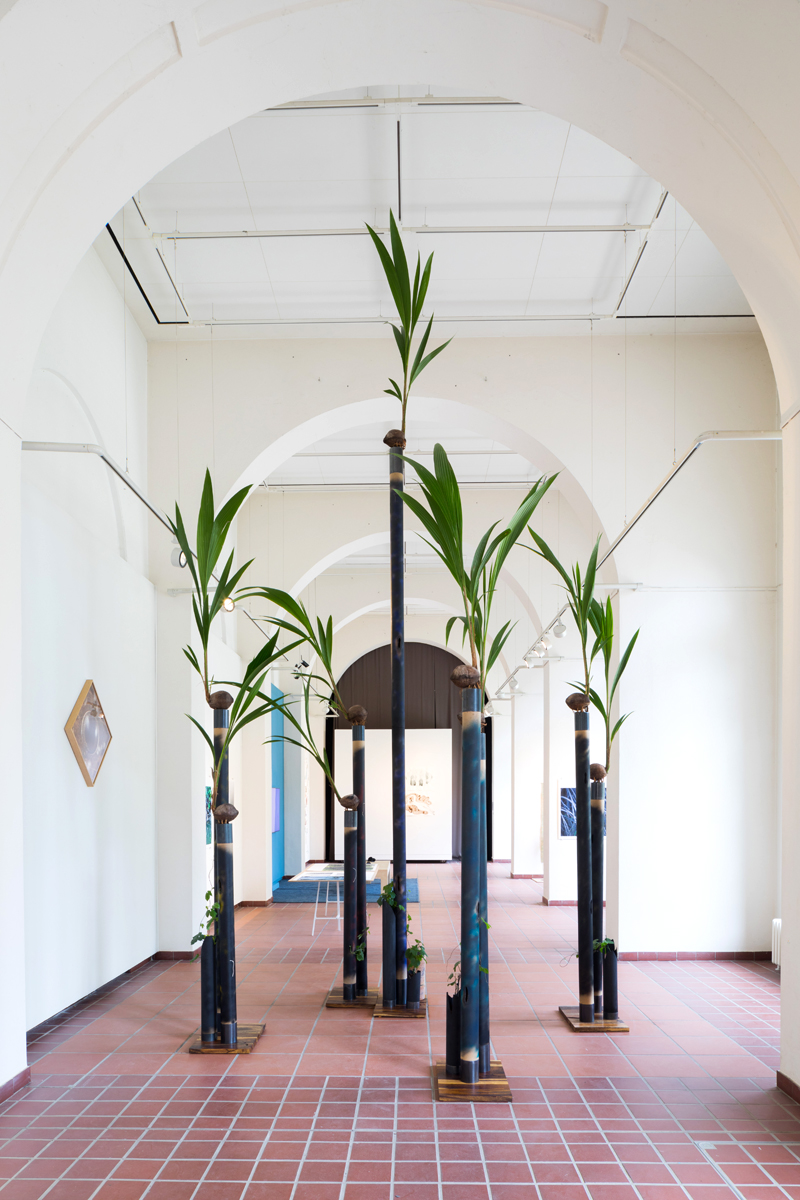


The Installation Totem Habitat Environmental Racism interrelates ceremonial ipomoea vines and coconut palms creating a ritual site in the former orangery at Körnerpark. The coconut palm and the ipomoea impart colonial concepts of “the tropics” and “the exotic.” The coconut palm has come to epitomise tropical vegetation and unspoiled nature. From an indigenous perspective, however, the coconut palm and the ipomoea are food resources and ritual medicinal plants, and as such, are expressions of a symbiotic and respectful relationship with the natural world. Ipomoea seeds are used by indigenous cultures in rituals to get in touch with the wisdom of nature. The seeds are resistant to high doses of radiation, and in commercial production are irradiated to provoke changes in flower colour. Resource-greedy food crops such as coconut palm and ipomoea can absorb high levels of radioactive material from the soil, rendering them unsuitable for consumption or trade, as has been demonstrated in many contaminated sites. The work draws attention to the fact that uranium mining, nuclear testing, the dumping of radioactive waste, and the global hunt for permanent storage sites for the world’s nuclear legacy are inextricably linked to the destruction of indigenous reserves and cultures. They are prime examples of international environmental racism in the scramble for power and the rush to satisfy the energy hunger of mass consumerism.
#2020#coconut#ipomoea vines#wood#environmentalracism#radioactivity#postcolonialism#bioaccumulation#contamination